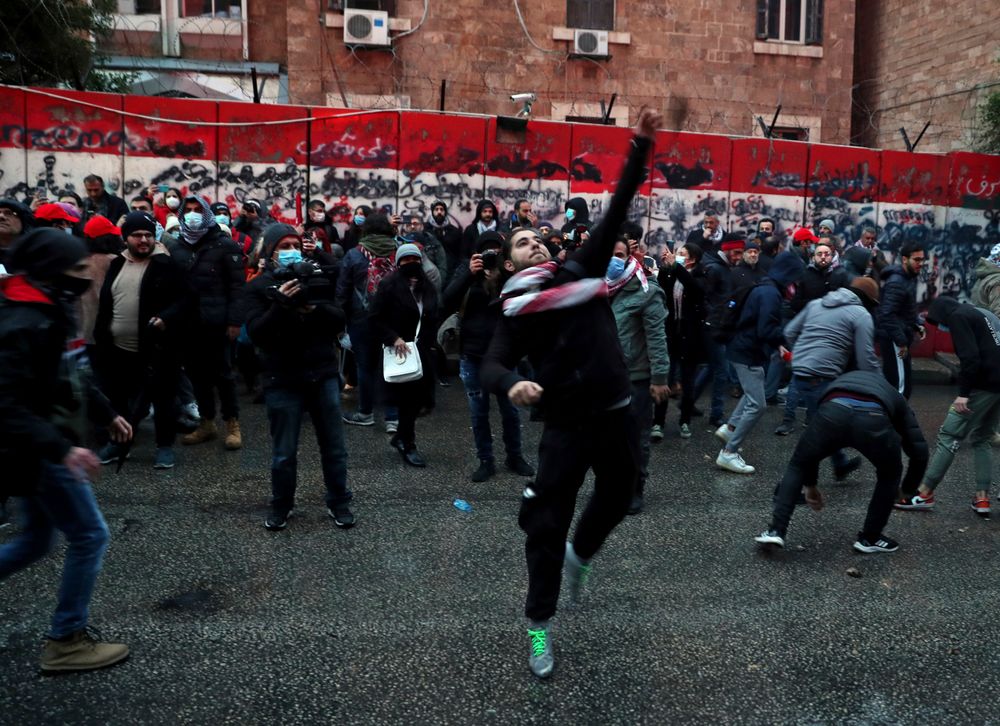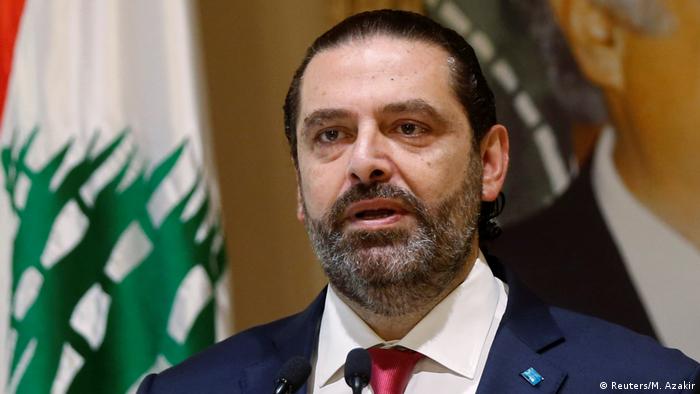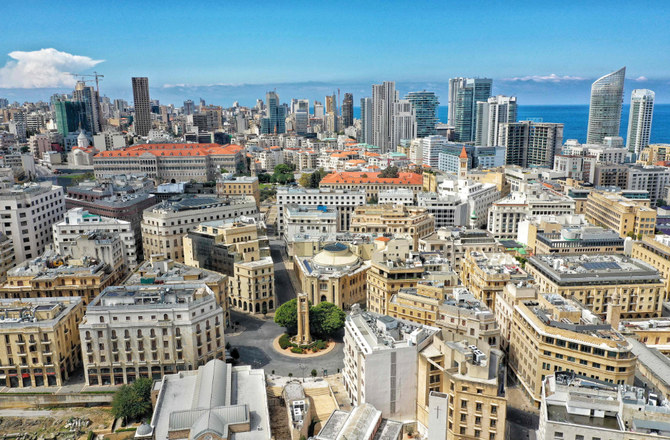
BEIRUT (AP) — Lebanon’s economy contracted by more than 58%, the World Bank said Tuesday, warning in a report that the small country’s financial meltdown poses a threat to long-term stability and social peace. It accused Lebanese leaders of being indifferent to the nation’s economic collapse, refusing to adopt a credible recovery plan and begin implementing reforms. The World Bank’s Lebanon Economic Monitor showed the country’s gross domestic product plummeted from close to $52 billion in 2019 to a projected $21.8 billion in 2021, marking the biggest contraction of the 193 countries listed by the publication. “The scale and scope of Lebanon’s deliberate depression are leading to the disintegration of key pillars of Lebanon’s post-civil war political economy,” said the report, titled, “The Great Denial.” The meltdown began in October 2019 and has thrown more than 75% of the country’s population into poverty. The same political class blamed for the decades of corruption and mismanagement leading up to the crisis has done almost nothing to help Lebanon climb out of the crisis.
The Lebanese pound has lost more than 90% of its value and there are several exchange rates, reflecting the severity of the crisis. Banks have imposed informal capital controls, depriving people of access to their savings. Despite spending billions of dollars on infrastructure projects since the civil war ended in 1990, electricity cuts out for 22 hours a day, tap water is largely undrinkable, roads are riddled with holes, trash piles on the streets while the sewage system floods whenever there is heavy rain. The report, which analyzes the end of 2021, estimates a decline of the GDP by 10.5% percent for that year. That comes after a 21.4% contraction in 2020. It lined up with earlier reports that said the crisis is one of the world’s most severe economic collapses in modern times. Lebanon’s surging inflation, estimated to average 145% in 2021, now ranks third globally after Venezuela’s and Sudan’s, it said.

By Kareem Chehayeb -- aljazeera -- Beirut, Lebanon – Former Prime Minister Saad Hariri has announced that he will suspend his involvement in political activities and will not run in upcoming parliamentary elections. The Hariri family has dominated Lebanon’s Sunni political landscape for more than three decades since the end of the country’s civil war in 1990. In Lebanon’s sectarian system, where parliamentary seats are allocated based on a sectarian quota, the vast majority of Sunni lawmakers are part of Hariri’s Future Movement party. “I’m convinced there is no room for any positive opportunities to Lebanon due to the Iranian influence, our indecisiveness with the international community, internal divisions, and sectarian divisions, I’m suspending work in political life and so is the Future Movement. And I’m not running in the elections, nor will the Future Movement,” Hariri said in a televised address on Monday. “We are staying in service of our people and nation, but our decision is to suspend any direct role or responsibility in ruling, representation, or politics in the traditional sense,” he added.
Parliamentary elections are slated for May 15, 2022. Lebanese will head to the polls for the first time since a countrywide popular uprising in late 2019, and the Beirut Port blast in August 2020 that killed more than 200 people and flattened several neighbourhoods in the capital. Lebanon is also reeling from a continuing economic crisis that has slipped more than three-quarters of the population into poverty in a little more than two years. Hariri said on Monday that his goal was to prevent another Lebanese civil war amid growing tensions and to improve the wellbeing of Lebanese, and said compromises he has made with political adversaries to prevent war has weakened his ability to improve the economy. “These agreements came at my expense, and could be the reason of my inability to make life better for the Lebanese. History will be the judge of that,” he said, citing loss of personal wealth, local and regional allies.
إنّ احجام أي طائفة عن المشاركة في الانتخابات النيابية، ترشيحاً او اقتراعًا، او تدني نسبة مشاركتها بشكل ملحوظ، ليس فشلًا للديمقراطية فحسب …

BEIRUT (Reuters) – Lebanon is suffering an economic meltdown that began in 2019 when the financial system collapsed under colossal state debts and the unsustainable way they were funded, while politicians have yet to come up with a rescue plan.
Just how bad is the situation?
– Gross domestic product has plunged to an estimated $20.5 billion in 2021 from about $55 billion in 2018, the kind of contraction usually associated with wars, the World Bank says, ranking the collapse as one of the worst globally since the mid-19th century.
– The Lebanese pound has lost more than 90% of its value, driving up the cost of almost everything in a country reliant on imports, and demolishing purchasing power. A soldier’s monthly wage, once the equivalent of $900, is now worth about $50.
– Poverty rates are sky-rocketing in the population of about 6.5 million, with around 80% of people classed as poor, the U.N. agency ESCWA says. The situation is worsening. In September, more than half of families had at least one child who skipped a meal, UNICEF has said, compared with just over a third in April.
Khazen History


Historical Feature:
Churches and Monasteries of the Khazen family

St. Anthony of Padua Church in Ballouneh
Mar Abda Church in Bakaatit Kanaan
Saint Michael Church in Bkaatouta
Saint Therese Church in Qolayaat
Saint Simeon Stylites (مار سمعان العامودي) Church In Ajaltoun
Virgin Mary Church (سيدة المعونات) in Sheilé
Assumption of Mary Church in Ballouneh
1 - The sword of the Maronite Prince
2 - LES KHAZEN CONSULS DE FRANCE
3 - LES MARONITES & LES KHAZEN
4 - LES MAAN & LES KHAZEN
5 - ORIGINE DE LA FAMILLE
Population Movements to Keserwan - The Khazens and The Maans
ما جاء عن الثورة في المقاطعة الكسروانية
ثورة أهالي كسروان على المشايخ الخوازنة وأسبابها
Origins of the "Prince of Maronite" Title
Growing diversity: the Khazin sheiks and the clergy in the first decades of the 18th century
Historical Members:
Barbar Beik El Khazen [English]
Patriach Toubia Kaiss El Khazen(Biography & Life Part1 Part2) (Arabic)
Patriach Youssef Dargham El Khazen (Cont'd)
Cheikh Bishara Jafal El Khazen
Patriarch Youssef Raji El Khazen
The Martyrs Cheikh Philippe & Cheikh Farid El Khazen
Cheikh Nawfal El Khazen (Consul De France)
Cheikh Hossun El Khazen (Consul De France)
Cheikh Abou-Nawfal El Khazen (Consul De France)
Cheikh Francis Abee Nader & his son Yousef
Cheikh Abou-Kanso El Khazen (Consul De France)
Cheikh Abou Nader El Khazen
Cheikh Chafic El Khazen
Cheikh Keserwan El Khazen
Cheikh Serhal El Khazen [English]
Cheikh Rafiq El Khazen [English]
Cheikh Hanna El Khazen
Cheikha Arzi El Khazen
Marie El Khazen